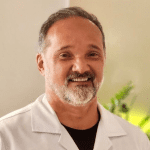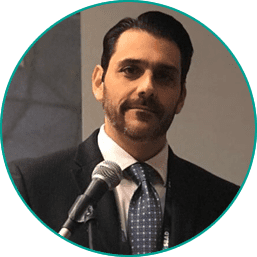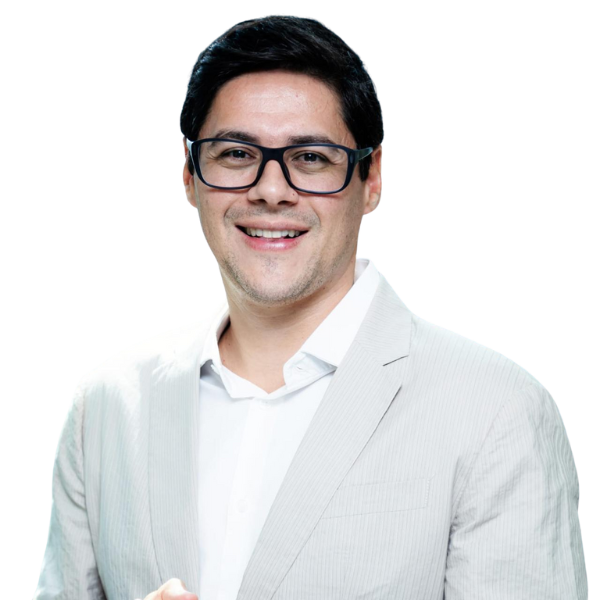Digestive endoscopy plays a crucial role in the diagnosis and treatment of various diseases of the digestive system. However, there is a significant shortage of specialized professionals in this area, which compromises the quality of health care. Training in Digestive Endoscopy still faces educational challenges, with few postgraduate programs and gaps in the practical training of doctors.
The Postgraduate Medical Course in Digestive Endoscopy aims to meet this need, qualifying doctors to perform endoscopic procedures and promoting a critical approach to the best clinical practices. The course also contributes to constant updating in the face of advances in the specialty, improving medical care and expanding access to specialized services. In this way, the course is essential for training specialists, improving clinical practice and having a positive impact on public health.









Brazil



|
|
ACTIVITY | DAY OF THE WEEK | TIME | TYPE | DAILY (H/A) |
WEEKLY (H/A) |
MODULE | TOTAL
COURSE |
THEORETICAL-PRACTICAL MODULE |
PRACTICAL CLASSES | 5th and 6th | 8:00 A 18:00 | PRESENTIAL | 10 | 20 | 20 | 160 |
| THEORETICAL CLASSES | 2nd to 4th | 19:00 A 21:00 | ONLINE | 2 | 6 | 6 | 48 | |
| COMPLEMENTARY ACTIVITIES | FREE | FREE | ONLINE | FREE | 5 | 5 | 40 | |
EXPERIMENTAL MODULE |
HANDS-ON TRAINING | 6TH TO SUNDAY | 8:00 A 18:00 | PRESENTIAL | 10 | 30 | 30 | 60 |
| ENTREPRENEURSHIP AND MEDICAL CAREER MANAGEMENT MODULE | THEORETICAL CLASSES | TO BE DEFINED |
TO BE DEFINED |
ONLINE |
TO BE DEFINED |
TO BE DEFINED |
52 |
52 |
| TOTAL | 360 | |||||||
Total workload of 360 hours, divided into 140 hours of theoretical activities and 220 hours of experimental and practical activities.
of 30 hours each
of 31 hours each
of 52h
The 52-hour course is taught entirely online
The activities will involve practicing digestive endoscopy on live experimental models and simulators, as well as discussing endoscopic findings, managing complications and updating on technological advances applied to clinical practice.
Date: to be determined
Method: In person (Curitiba/PR)
Experimental classes | Friday to Sunday
Realistic simulation in an experimental operating room applied to live models and simulators.
Date: to be determined
Mode: Hybrid (Online / Hospital)
Theoretical topics | Monday to Wednesday
- Normal endoscopic aspects of the esophagus-stomach-duodenum
- Motor disorders of the esophagus
- Gastroesophageal reflux
Practical classes | Thursday and Friday
Understand the principles of upper digestive endoscopy, including its indications, diagnostic and therapeutic techniques, interpretation of endoscopic findings and management of complications, with a view to safe and effective application in clinical practice.
Date: to be determined
Mode: Hybrid (Online / Hospital)
Theoretical topics | Monday to Wednesday
- Hiatus hernia/esophagitis
- Barret's oesophagus
- Helicobacter pylori - diagnostic and therapeutic approach
Practical classes | Thursday and Friday
Follow-up of cases and examinations of patients in endoscopy services carried out in previously defined partner hospitals.
Date: to be determined
Mode: Hybrid (Online / Hospital)
Theoretical classes | Monday to Wednesday
- Biopsies - training
- Foreign body - training
Practical classes | Thursday and Friday
Follow-up of cases and examinations of patients in endoscopy services carried out in previously defined partner hospitals.
Date: to be determined
Mode: Hybrid (Online / Hospital)
Theoretical classes | Monday to Wednesday
- Varicose vein sclerosis
- Elastic bandage
Practical classes | Thursday and Friday
Follow-up of cases and examinations of patients in endoscopy services carried out in previously defined partner hospitals.
Date: to be determined
Mode: Hybrid (Online / Hospital)
Theoretical classes | Monday to Wednesday
- Polypectomy
- Hemoclip
Practical classes | Thursday and Friday
Follow-up of cases and examinations of patients in endoscopy services carried out in previously defined partner hospitals.
Date: to be determined
Mode: Hybrid (Online / Hospital)
Theoretical topics | Monday to Wednesday
- Malignant lesions of the esophagus
- Functional dyspepsia
- Benign lesions of the stomach and duodenum
Practical classes | Thursday and Friday
Follow-up of cases and examinations of patients in endoscopy services carried out in previously defined partner hospitals.
Date: to be determined
Mode: Hybrid (Online / Hospital)
Theoretical classes | Monday to Wednesday
- Gastrostomy
- Jejunostomy
- Nasogastric/nasoenteral tube
Practical classes | Thursday and Friday
Follow-up of cases and examinations of patients in endoscopy services carried out in previously defined partner hospitals.
Date: to be determined
Mode: Hybrid (Online / Hospital)
Theoretical classes | Monday to Wednesday
- Lesions modulated by medications
- Malignant lesions of the stomach
- Digestive hemorrhage
Practical classes | Thursday and Friday
Follow-up of cases and examinations of patients in endoscopy services carried out in previously defined partner hospitals.
Date:
Method: In person (Curitiba/PR)
Experimental classes | Friday to Sunday
Realistic simulation in an experimental operating room applied to live models and simulators.
Date: to be determined
Mode: Online
This module aims to guide the career thinking of medical professionals in order to lay the foundations for career planning and entrepreneurship through design and planning tools with the structuring of scenarios and possible outcomes.
75% class attendance
Concept "C" in the general evaluation
The Postgraduate Medical Course in Digestive Endoscopy is open to doctors who have a definitive registration with the Regional Council of Medicine (CRM) and a Specialist Qualification Record (RQE) in Gastroenterology, Proctology, Internal Medicine, General Surgery or Digestive System Surgery.
Before issuing your tickets, talk to our sales department.
INVESTMENT:
14 installments of R$ 4,415.00* on recurrence (without compromising your credit card limit) or R$ 66,000.00 in cash via pix.
For your convenience, avoid virtual cards to ensure that the recurring payment is processed successfully.
Before issuing your tickets, talk to our sales department.
Receive our Newsletter
Scolla © - All Rights Reserved
Scolla © - All Rights Reserved
In accordance with Laws No. 12.965/2014 (Marco Civil da Internet) and No. 13.709/2018 (Lei Geral de Proteção de Dados - LGPD), by submitting my registration data, I authorize Scolla Centro de Treinamento Cirúrgico com Resultado to use my data to send me notifications by email or other means of communication that may be of interest to me.